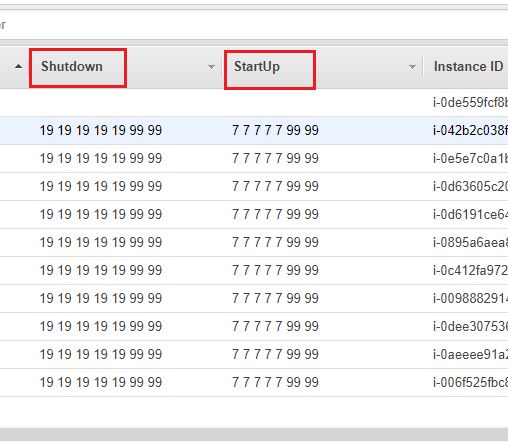Hardened CIS AWS AMI
I had a need to create a hardened (CIS) base image for a project.The AMI created from this project was not used directly, but rather as a base image to other application-specific Stacks.
The following is a Packer file:
{
"variables": {
"aws_access_key": "",
"aws_secret_key": "",
"aws_region": "{{ env `AWS_DEFAULT_REGION` }}",
"bitbucket_branch": "",
"bitbucket_buildnumber": "",
"bitbucket_commit": "",
"bootstrap_commit": ""
},
"builders": [{
"type": "amazon-ebs",
"access_key": "{{user `aws_access_key`}}",
"secret_key": "{{user `aws_secret_key`}}",
"region": "ap-southeast-2",
"vpc_id": "vpc-1cceEXAMPLE8178",
"subnet_id": "subnet-b8fEXAMPLE1e0dc",
"associate_public_ip_address": true,
"ssh_private_ip": false,
"ssh_pty": true,
"source_ami": "ami-240EXAMPLEef546",
"instance_type": "c4.large",
"ssh_username": "ec2-user",
"ami_name": "CIS-AWSLinux-Base {{isotime | clean_ami_name}}",
"ami_users": ["<Account_Number>"],
"launch_block_device_mappings":[{
"device_name":"/dev/xvda",
"volume_size":30,
"volume_type":"gp2",
"encrypted":false,
"delete_on_termination":true
}],
"tags": {
"OS_Version": "AWSLinux",
"Name": "CIS-AWSLinux-Base",
"Timestamp": "{{timestamp}}",
"AMI_Branch": "{{user `bitbucket_branch`}}",
"AMI_Build_Number": "{{ user `bitbucket_buildnumber`}}",
"AMI_Commit": "{{ user `bitbucket_commit`}}",
"Bootstrap_Commit": "{{ user `bootstrap_commit`}}"
}
}],
"provisioners": [{
"type": "shell",
"inline": [
"sleep 30",
"sudo bash -c 'echo export PATH=\\$PATH:/opt/aws/bin/ >> /etc/profile'",
"sudo yum clean all",
"sudo yum -y update",
"sudo yum -y install epel-release",
"sudo yum install -y libselinux libselinux-utils libselinux-utils selinux-policy-minimum selinux-policy-mls selinux-policy-targeted policycoreutils awslogs",
"sudo sh -c 'selinux=1 security=selinux enforcing=1'",
"sudo sh -c 'touch /.autorelabel'",
"sudo cp -prv /boot/grub/menu.lst /boot/grub/menu.lst.default",
"sudo sed -i 's/selinux=0/selinux=1 security=selinux enforcing=1/g' /boot/grub/menu.lst",
"sudo sed -i 's/selinux=0/selinux=1 security=selinux enforcing=1/g' /etc/grub.conf",
"sudo yum -y install augeas git python36 python-pip36 bc unzip wget telnet jq nfs-utils",
"sudo yum install -y https://s3.amazonaws.com/ec2-downloads-windows/SSMAgent/latest/linux_amd64/amazon-ssm-agent.rpm",
"sudo pip install pystache argparse python-daemon requests",
"sudo pip install --upgrade pbr",
"sudo pip install --upgrade pip",
"sudo mkdir /efs",
"sudo chmod 755 /efs",
"sudo sed -i 's/^server/#server/g' /etc/ntp.conf",
"sudo sed -ie \"\\$aserver 169.254.169.123 prefer iburst\" /etc/ntp.conf",
"sudo sed -i 's/daemon//g' /etc/init.d/ntpd",
"sudo sed -i 's/$OPTIONS//g' /etc/init.d/ntpd",
"sudo rm -f /root/.ssh/authorized_keys"
]
}],
"post-processors": [
[{
"type": "manifest",
"output": "manifest.json",
"strip_path": true
}]
]
}
Build as follows:
packer build -var bitbucket_commit=${MAINCOMMIT} -var chef_commit=${CHEFCOMMIT} -var bootstrap_commit=${BOOTSTRAPCOMMIT} -var bitbucket_branch=${BITBUCKET_BRANCH} -var bitbucket_buildnumber=${BITBUCKET_BUILD_NUMBER} packer.json
